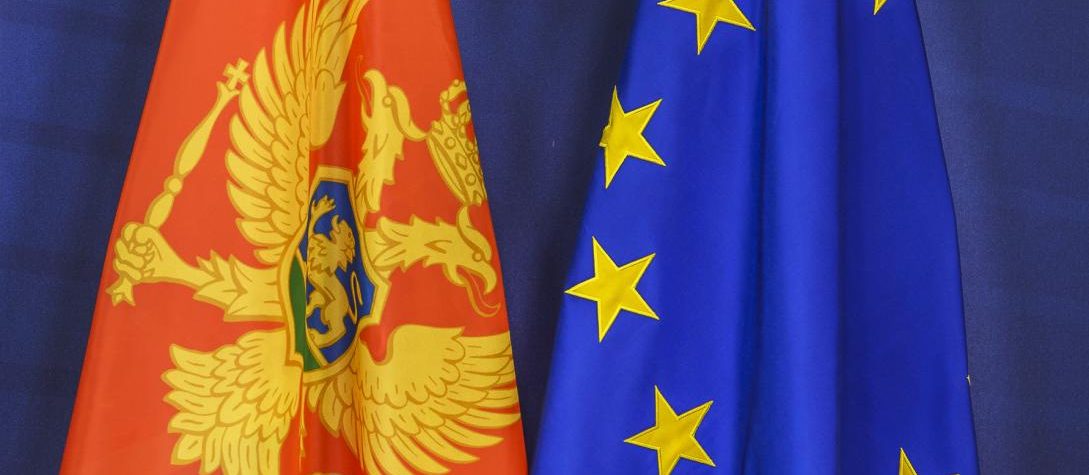The Russian invasion of Ukraine and China’s economic aggression around the world has changed the EU’s approach to global security and created a new impetus for its enlargement process. Faster enlargement, particularly in the Western Balkans, is seen by the EU as a strategic necessity for regional stability and prosperity. As an immediate reaction to Russia’s war, Ukraine, Moldova, and Georgia decided to submit their request for EU membership, with EU leaders quickly granting Ukraine, Moldova, and Bosnia (who applied in 2016) candidate status, and pushing for quicker negotiations with the Western Balkans candidates. This is a great opportunity, in unique circumstances, for Montenegro to also secure its path to EU membership.
Negotiating since 2012, Montenegro has been viewed as the most advanced country in the accession process relative to other candidates, opening all 33 chapters and closing three. However, this status is more indicative of the EU’s enlargement fatigue over the past few years than a compliment to Montenegro. Progress in Montenegro’s accession has stalled completely; the country has not closed a single chapter in the past five years and the political system is paralysed with divisions between pro-EU and pro-Russian factions. With EU enlargement likely accelerating in the coming months and EU leaders actively engaging with 10 candidate and potential candidate countries – the highest in its history – there is a risk the EU turns its attention elsewhere whilst Montenegro faces paralysis.
In Montenegro, three out of four citizens want their country to become a member of the EU. Despite repeatedly making pro-EU pledges, Montenegro’s leadership have failed to deliver and make the reforms the EU has consistently called for, such as improving rule-of-law, reducing corruption, and strengthening state institutions. In August 2022, the Montenegrin Parliament voted against the election of members of the judiciary, a key step for EU negotiations, prompting the EU’s Montenegro Rapporteur Tonino Picula to claim Montenegro “must decide whether it will continue in the direction of European integration”.
If Montenegro’s political system has stopped representing the people – and put the prospect of membership under threat – the country needs to find a new way before politicians waste another decade. That is why I have launched Montenegrin Dream, an independent non-government organisation founded by the citizens of Montenegro with the mission to fight for EU membership. Now is the time for the citizens of Montenegro – regardless of party ideology or background – to hold politicians to account. Through Montenegrin Dream, the citizens – not the same old politicians with rebranded parties – will secure Montenegro’s path towards EU membership.
Montenegrin Dream will become a platform to scrutinise politicians and set out five areas of economic, political, and social reform. These reforms will support the improvement in living standards and help develop Montenegro into a modern, European nation. As part of the next generation of Montenegrin entrepreneurs I know first-hand the importance of preparing our economy, society, and state institutions for EU membership. I can also see Montenegro’s unrivalled potential; we have a young and dynamic population, we are strategically located in the Balkans, and we have the perfect climate to support the energy solutions of the future.
Candidate countries must create thousands of highly skilled and well-paid jobs, and improve the quality of goods and services, to join the world’s largest economic area. Other Western Balkans nations have recently demonstrated this, such as through the rehabilitation of a hydropower plant in Albania and three solar power plant projects in Albania as well as in North Macedonia, and a smart metering project in Serbia. These reforms and access to EU investment not only create jobs and reduces the Western Balkans’ reliance solely on tourism, but are vital for Montenegro’s energy security in the context of the ongoing global energy crisis.
The Montenegrin Dream will also propose bold judicial and political reform to ensure our state institutions are effective and independent, restoring trust and eliminating corruption from public life. Montenegro’s entire membership prospects depend on judicial and political reform, yet with political parties overthrowing a government for the second time this year, prospects of serious reform are slim. This exposes the country to political chasms that are being exploited by the EU’s strategic rivals. Montenegro’s recent disruption of a large network of Russian intelligence officers indicates Russian efforts to gain a foothold in the EU’s backyard will continue even after the failed coup attempt in 2016. Active civic action together with EU support is the lifeline Montenegro needs before the EU loses Montenegro for good.
Over the coming months, the Montenegrin Dream will convene a team of independent experts from Montenegro and Europe to further develop the five areas of reform. This team of experts will gather with one goal in mind: raising living standards and holding to account those who have promised so much and fulfilled so little. A long line of parties and politicians have given the citizens of Montenegro hollow promises and failed to implement the reforms necessary for membership. As Europe and the EU looks to be more united in the face of Russian aggression, we have a unique opportunity to fast-track our EU negotiations. But that requires a new way forward for the citizens of Montenegro to secure the country’s path to EU membership, hold to account those who have delivered so little, and realise the Montenegrin Dream.
Rade Vujacic is a Montenegrin entrepreneur and founder of the Montenegrin Dream, a not-for-profit organisation


